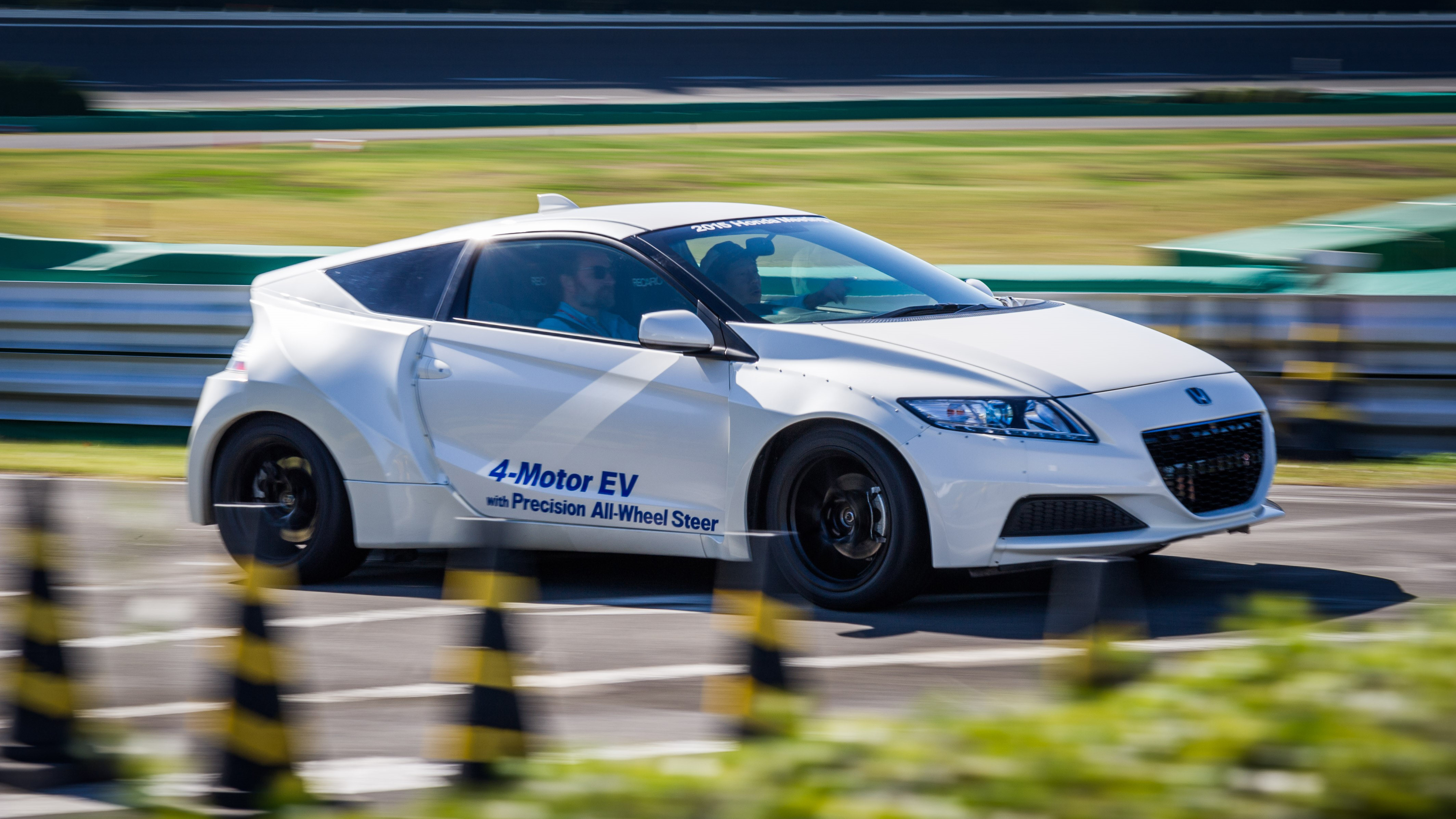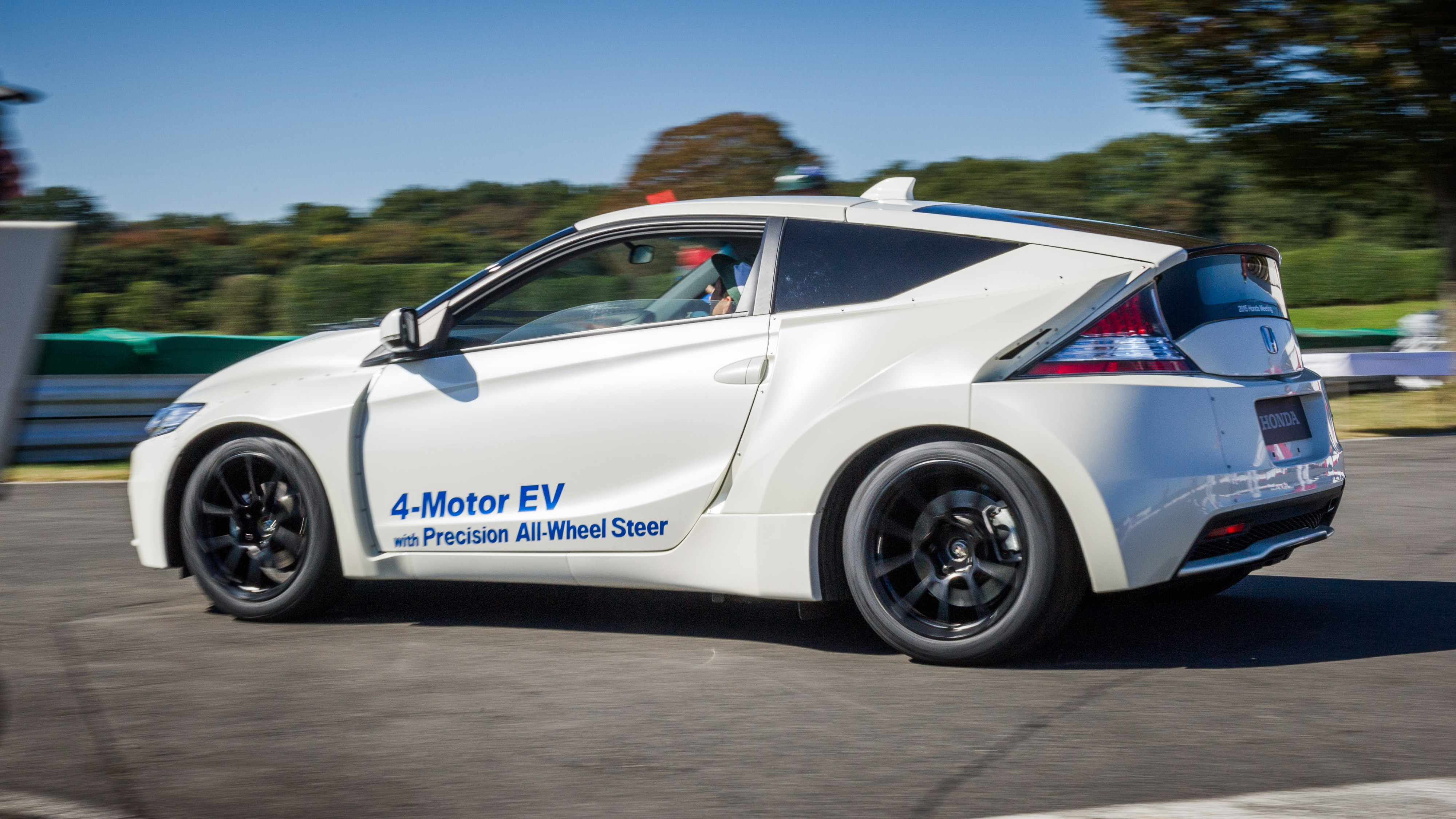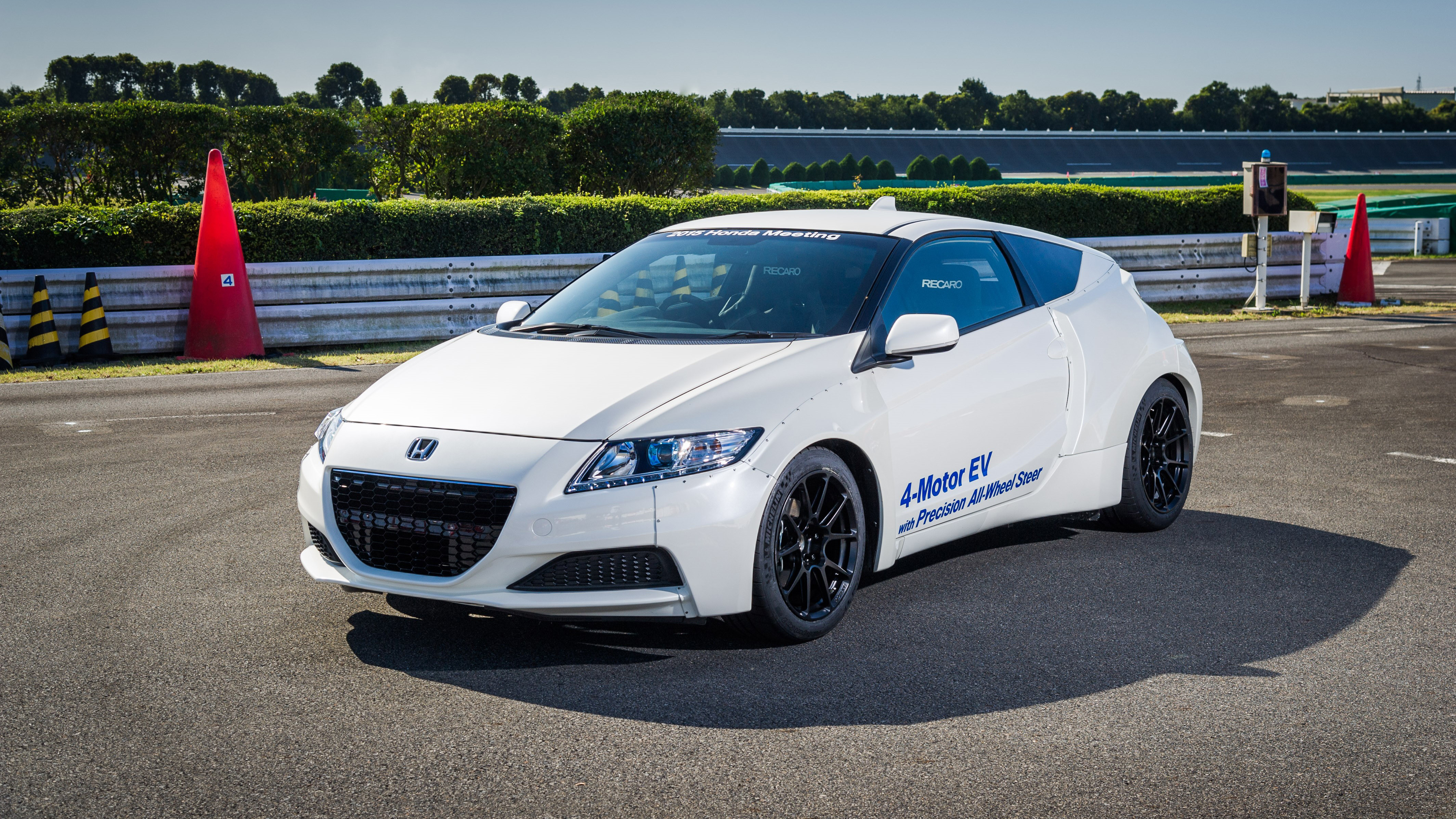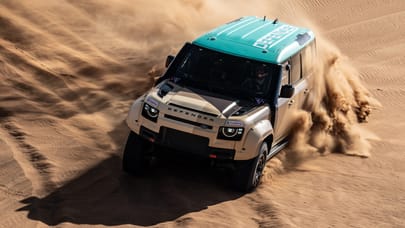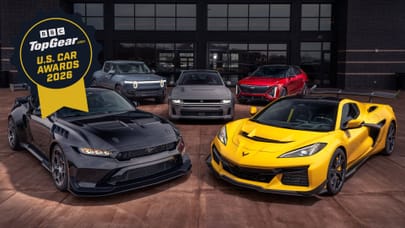
We drive Honda's small electric sportscar prototype
Under the body of a flared CRZ lies 250bhp and 0-60mph in 3.5s. Paul Horrell reports
Honda has been quietly beavering away on a compact electric sports car. We've just had a brief few minutes driving a mule. This squeezes the new drivetrain under a hilariously flared CRZ coupe. It uses four separate motors, each controlling one wheel, giving it epic traction and control.
Overcome with enthusiasm for the way the idea was working, a posse of engineers on the project built a souped-up version with bigger batteries and more power – 450bhp. They sent it up the Pike's Peak hillclimb this summer. It came 11th overall, and everything that went faster had much more power, or much less weight, or both.
Back in 2012 Honda, the project engineers tell us, began to look at a new sports EV. They knew the NSX would use individual motors for the front wheels; they wanted to extend this torque-vectoring to electric rear drive too.
They arrived at a design with about 250bhp in total. That, in cahoots with catapult off-the-line traction, is enough to get the 0-60mph time down to a most snappy 3.5 seconds. Even in a car that weighs 1600kg.
The prototype has all the workmanlike charm of a car made for a job. The job being eating corners whole. Fat tyres and riveted-on arch extensions catch the light in Honda's signature Championship White paint.
Inside, it's a hackers' paradise: mysterious displays and readouts in Japanese, ad-hoc banks of switches. It's all witchcraft to me. So I just strap in and mash the right pedal.
Bad idea. The white bumblebee silently snaps forward. My head's bashed backward against the hard race-seat, and the marshall guarding track entrance looks at me as if I've got it in for him. I back off and wave apologetically.
Once on the circuit I give it another prod. Sure enough the acceleration is properly violent up to about 50mph, but then tails off. The engineer later confesses the power has been wound down for today's demo. But the torque's at full strength, and that's what launches it from rest.
Honda, being Honda, has further complicated things by adding rear-wheel steering to the torque vectoring package. So I have no idea what hardware or software is responsible for what behaviour. All I know is it takes the tight corners and the wide ones with the same implacable, unshakeable determination. Brake, steer, squirt. No need for much finesse from the driver. Let the systems sort it out.
Most electric prototypes are a grab-bag of inappropriate noise: high-voltage hums, whining motors, whirring fans, grinding gears. Not this one. It's impressively hushed, which is another reason to think it's more than an idle what-if project.
Top Gear
Newsletter
Thank you for subscribing to our newsletter. Look out for your regular round-up of news, reviews and offers in your inbox.
Get all the latest news, reviews and exclusives, direct to your inbox.
The battery holds 16kWh of energy, or about half what's in the new uprated Nissan Leaf – so it wouldn't be an unmanageable expense. The engineers also say that the four small motors are regular industrial types, much cheaper than the special big motors that car makers usually have to pay for.
The engineers say the target would be to get power up to 350bhp, with a range of 250 miles. If they can do that, they reckon the buyers will come.
It would have an all-new body. I have a suspicion this might be the spiritual successor to the S2000. Stay tuned: there's more digging to be done here.
Trending this week
- Car Review
BMW 1 Series
- Top Gear's Top 9
Nine dreadful bits of 'homeware' made by carmakers




